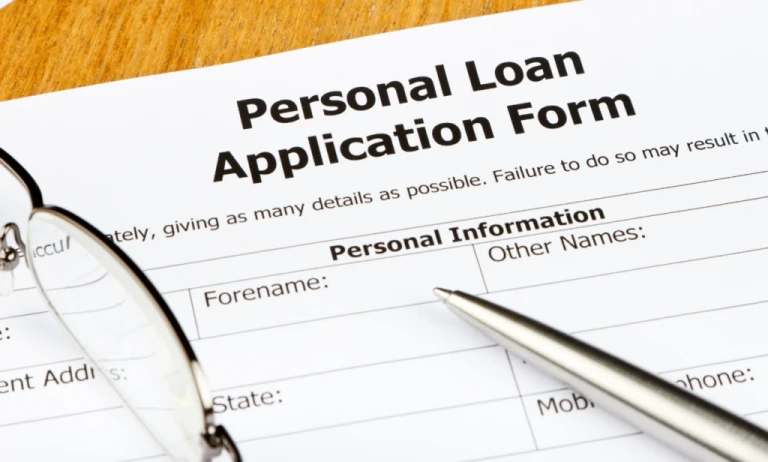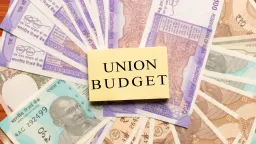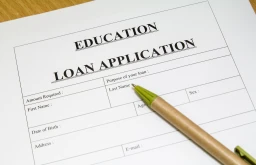6 Reasons for Personal loan Rejection

Are you tired of getting rejected for personal loans? Rejection can be frustrating and discouraging when you’re in need of financial assistance. But don’t give up just yet! In this blog post, we’ll explore six common reasons why lenders may reject your loan application. By understanding these factors, you can take steps to improve your chances of approval and get the funds you need to achieve your financial goals. So let’s dive in and uncover why personal loan rejection happens – and how to avoid it!
You may also want to read: Top 10 Personal loans in India 2023
Most Common reasons for Personal Loan rejection
Let’s take a closer look at the most common reasons for personal loan rejection here:
Having poor or no credit score
Your credit score, which ranges from 300 to 900 and essentially represents your creditworthiness or financial health, has a significant impact on a lender’s decision to grant you a loan. Before approving a Personal Loan, lenders typically require a minimum credit score.
This is possibly one of the most common reasons for loan rejection. If your credit score falls below this level, you will not be approved for the loan. Candidates who do not have a credit score may also be rejected because a lender cannot assess their spending habits without a credit history.
Several loan inquiries and applications have been received
When you inquire about Personal Loans from various lenders, you may frequently end up submitting multiple Personal Loan applications. However, keep in mind that whenever you apply for a Personal Loan, the bank will check your credit score and request a copy of your credit report from the Credit Bureau.
As a result, lenders and banks may begin to question your financial credibility and perceive you as credit-hungry and in desperate need of funds.
Several Pending Loans
This is one of the most common reasons for Personal Loan rejection. If your current debts and other obligations consume the majority of your income, your Personal Loan application may be denied.
Because banks can access your financial profile and credit situation even if you have taken out loans from third-party banks, it is recommended that you only take out loans when absolutely necessary and that you pay your instalments on time. If you have numerous active debts with banks and NBFCs, your chances of obtaining a Personal Loan are reduced.
To avoid having your application denied, keep existing debts to a minimum and set aside at least 50% of your monthly salary.
Income Requirements Have Not Been Met
Before approving a Personal Loan, financial institutions want to ensure that they will receive their money on time. Lenders look into the applicant’s income to ensure timely loan repayment.
Having a sufficient and consistent income demonstrates your ability to repay all of your EMIs on time. Salary employees can obtain a Personal Loan more easily than self-employed people because they have fixed income levels and sources. The majority of lenders have established minimum income requirements for salaried and self-employed borrowers, and if you apply for a Personal Loan amount that exceeds your eligibility, your loan application is likely to be denied.

Documentation and eligibility criteria were not met
Your Personal Loan request will be approved only after your documents have been validated. If any required documentation is missing or contains inconsistent information, your lender will deny your loan application.
Documents submitted with your Personal Loan application are just as important as those submitted separately. The information you provide on your Personal Loan application, such as your name, age, income, and address, is critical for the lender to gather information about you. If lenders discover errors in any of these or other information provided in your Personal Loan application, your loan request will be denied.
Unstable Employment History
Your employment history will also influence whether your Personal Loan is approved. This could be the most important reason for a loan rejection. If you change jobs too frequently or are unable to demonstrate consistent employment over a set period of time, your application for a Personal Loan will be denied.
Most lenders frequently reject applicants who work for unregistered businesses or receive cash salaries. Lenders examine your employment history in order to reduce the likelihood of loan default.
As a result, applicants with less than a year of work experience or who have only been with their current employer for six months or less may have their loan request denied.
Tips to avoid Rejection
- Demonstrate your additional income sources, such as variable pay, quarterly incentives, and income from other sources, to combat low income and improve your eligibility.
- Pay off all of your current debts, including credit card bills, on time before applying for a Personal Loan. This will help you improve your credit score.
- Submit an application for the loan with another family member, preferably one with a higher income and CIBIL score.
- Submitting multiple loan applications at the same time may result in your loan application being rejected.
- Choose a lender that meets your needs and has simple eligibility requirements.
Also read: Top car loans in India 2023
The Bottom line
Applying for a Personal Loan is simple. To get instant or same-day approval, you only need to enter your basic information once and submit it online. This quick application process, however, does not guarantee acceptance. Fill out the details completely because your lender will confirm them before approving your application.
We hope that this blog will help you understand the common reasons for Personal Loan application denials, as being aware of the mistakes that can cause your application to be rejected will help you avoid making those mistakes.
Follow us on Instagram.









